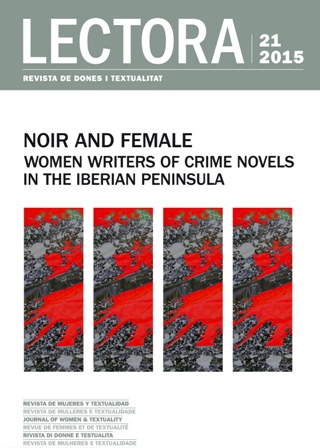In broad daylight: Icíar Bollaín’s Mataharis (2007) and the revision of film noir
Keywords:
Mataharis, film noir, woman detective, femme fatale, gazeAbstract
The aim of this article is to analyze Icíar Bollaín's Mataharis (2007) from the perspective of the film noir conventions. Although the context within which the female spies work is different from that of the traditional film noir detectives, their position of control —thematized in the film by means of the appropriation of the inquisitive gaze, traditionally seen as a prerogative of the male subject— allows for a wider consideration of the ambiguities and paradoxes that arise from the representation of women as figures of power in the detective fiction.
Downloads
Published
How to Cite
Issue
Section
License
The Author retains ownership of the copyright in this article and grants Lectora: revista de dones i textualitat the rights to print publication of the Article. The work will be available under a Creative Commons Attribution-Noncommercial-No Derivative Works license, by which the article must be credited to the Author and the Journal be credited as first place of publication.
The Author is free to enter in seperate, additional contractual agreements for the non-exclusive distribution of the work as published in this journal (such as institutional repositories or a book), as long as the original publication in Lectora is credited.
The Author is encouraged to post the work online (eg in institutional or thematic repositories, or in their website), as it can lead to productive exchanges as well as to a greater citation of the published work (see The Effect of Open Access).




